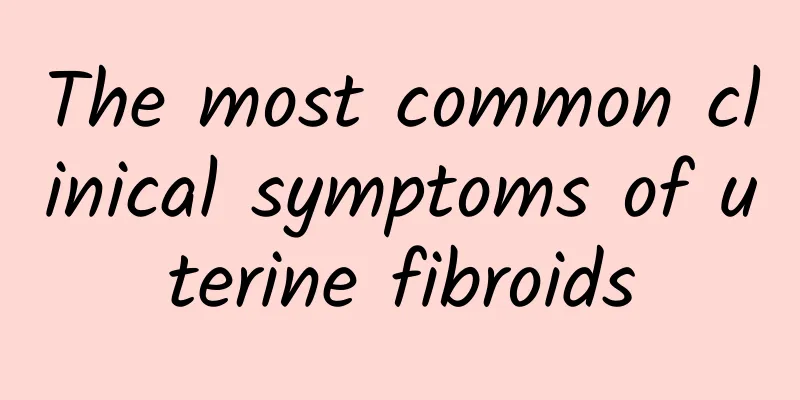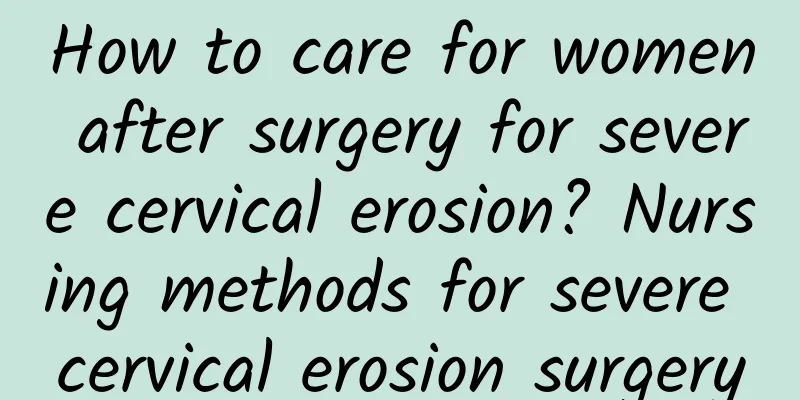Does painless abortion mean only suctioning out the gestational sac without curettage?

|
Painless abortion does not mean only suctioning the gestational sac without curettage. It still involves the process of curettage. The main difference between painless abortion and ordinary abortion is the use of anesthesia to reduce the pain during the operation. 1. The process of painless abortion Painless abortion mainly uses negative pressure suction to remove the gestational sac, and may also require the use of a curette to clean the inner wall of the uterus. Although this surgical method reduces pain, it still causes some damage to the uterus. Before the operation, the doctor usually conducts a detailed examination to ensure the safety of the operation. 2. The role of anesthesia Painless abortion uses short-acting intravenous anesthesia, which makes the operation more comfortable. Anesthesia not only relieves physical pain, but also relieves psychological stress to a certain extent. However, anesthesia also has risks and may cause temporary discomfort or anesthesia reaction, so it needs to be performed by a professional anesthesiologist. 3. Impact on the uterus Whether it is painless abortion or ordinary abortion, it will cause certain damage to the endometrium. It may cause problems such as endometrial thinning and uterine adhesions, affecting future fertility. This is why it is recommended that you be cautious when choosing an abortion and try to avoid multiple abortions. 4. Postoperative recovery and precautions After surgery, you need to get enough rest and avoid heavy physical labor. At the same time, maintain good personal hygiene to prevent infection. Eat more foods rich in protein and vitamins to help your body recover. If you experience any abnormalities after surgery, such as persistent bleeding or severe abdominal pain, you should seek medical attention immediately. 5. Importance of contraception Due to the risks of abortion and its impact on the uterus, it is particularly important to take good contraceptive measures. Whether using condoms, oral contraceptives, or other contraceptive methods, they can effectively reduce the occurrence of unwanted pregnancies and protect your health. 6. Mental health concerns Abortion surgery is not only a physical challenge, but may also have psychological effects. Mood swings or depression may occur after surgery. It is recommended to communicate with family and friends in a timely manner and seek help from professional psychological counseling when necessary. Although painless abortion reduces the pain during the operation, it does not mean that there is no risk. Before choosing the operation, you should fully understand the relevant information and take contraceptive measures to better protect your physical and mental health. |
<<: Which one recovers faster, medical abortion or surgical abortion?
>>: Less harmful abortion methods
Recommend
Draining water after heavy rain to prevent papaya blight
It is currently the peak production season for pa...
What are the symptoms of adnexitis?
What are the symptoms of adnexitis? Nowadays, the...
The hidden dangers behind the ketogenic diet... Let Huang Xiaotong, a nutritionist, tell you
A video went viral on the Internet a while ago an...
How is Polycystic Ovary Syndrome Diagnosed?
The main clinical manifestations of PCOS are mens...
There are many types of irregular menstruation.
Irregular menstruation is a common disease among ...
How long does it take to cure endometrial thickening?
Thick endometrium is one of the causes of female ...
Low sugar, ketogenic and reduced sugar ~ Learn all three weight loss diets in one go
"Low-sugar diet" and "ketogenic di...
Is it good to take painkillers for dysmenorrhea? Will there be side effects?
Many women experience severe dysmenorrhea before ...
What should we pay attention to in the daily care of ovarian cysts?
What should be paid attention to in the daily car...
Do hermaphrodites really exist? Do they have both female and male organs? Doctors explain
Not long ago, I treated a patient named Ms. Li. S...
Experts explain how to effectively relieve dysmenorrhea
Relieving dysmenorrhea is a topic of concern to m...
What are the common symptoms of menopause?
Normal menopause does not cause much harm to the ...
Knowledge about the treatment of cervical erosion
Cervical erosion is not a disease. During adolesc...
What happens if you catch a cold after an abortion? How to treat a cold after an abortion?
If people catch a cold after having an abortion, ...
Debunking 3 myths about weight loss! Controlling aging helps with weight management
The numbers speak! Obesity has long been a seriou...









